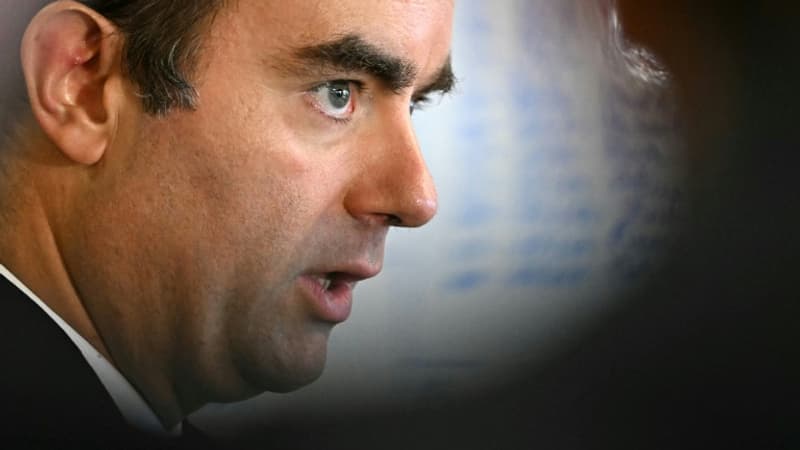The re-elected Prime Minister, Sébastien Lecornu, should present on Tuesday a first copy of his budget for 2026 to stop the deviation of public accounts, leaving Parliament to overcome its divisions to find a compromise.
Appointed on Sunday afternoon “to provide France with a budget before the end of the year”, in his words, the Lecornu 2 Government will hold its first council of ministers on Tuesday at 10:00 am.
A draft budget can be presented and then transmitted to the National Assembly.
Time is running out because, according to the Constitution, Parliament must have at least 70 days to complete this budget review by December 31. Otherwise, a special law could renew the 2025 appropriations identically and state spending would be frozen.
Until the end, negotiations were carried out to try to assemble a parliamentary majority and avoid the prospect of censure or new early legislative elections.
After having crystallized in the Zucman tax on the assets of the ultra-rich, demanded by the left but rejected by Lecornu, the debate moved to another minefield, that of pensions.
Less ambitious path
The Socialist Party calls for the suspension of the reform that sets the legal retirement age at 64 years, a point on which the Government has declared itself willing to debate. But this perspective, which would cost at least 3 billion euros in 2027, fractures the presidential field and repels the right and the bosses.
Due to lack of time, the draft budget could be identical to the one that Sébastien Lecornu sent on October 2 to the Higher Council of Public Finances (HCFP).
The latter has already issued an opinion that remains confidential, indicated its president Pierre Moscovici.
Some measures have already been revealed, inspired by the copy of former Prime Minister François Bayrou, which provided for an effort of 44 billion euros: reduction of the State lifestyle, reduction of the production tax demanded by companies, tax directed at family holdings sometimes used to avoid the tax, maintenance of an additional contribution from high incomes.
To have room for a compromise, Sébastien Lecornu agreed to reduce his ambitions to clean up public finances.
The public deficit landing zone is now projected “below 5%” of gross domestic product (GDP) instead of 4.7%.
Every tenth of a percentage point of additional deficit corresponds to almost 3 billion euros of additional spending.
Cost of uncertainty
This complicates the path back in 2029 to a maximum 3% deficit authorized by Brussels, while the euro zone’s second largest economy is already a fool in this area.
Fifty years after its last budget surplus, in 2024 it recorded the worst deficit: 5.8% of GDP, or “a hole” of almost 170 billion euros between expenses and income. The deficit would reach 5.4% in 2025.
The debt is the largest behind those of Greece and Italy (115.6% of GDP or 3,416.3 billion euros at the end of June).
To complicate the situation, growth is also likely to be lower than expected in 2026, at 1% or even 0.9% instead of 1.2%, synonymous with lower tax revenues.
The Banque de France estimates the cost of the political crisis at “at least 0.2 growth points.”
This “slows down investment and contracting decisions and paralyzes economic agents,” the head of Medef, Patrick Martin, stressed in the JDD on Sunday.
France is also paying the price for instability in the markets where it has borrowed more expensively since the June 2024 dissolution, increasing the cost of debt.
Interest, on its way to becoming the main item of State spending, could exceed 70 billion in 2026.
Source: BFM TV


